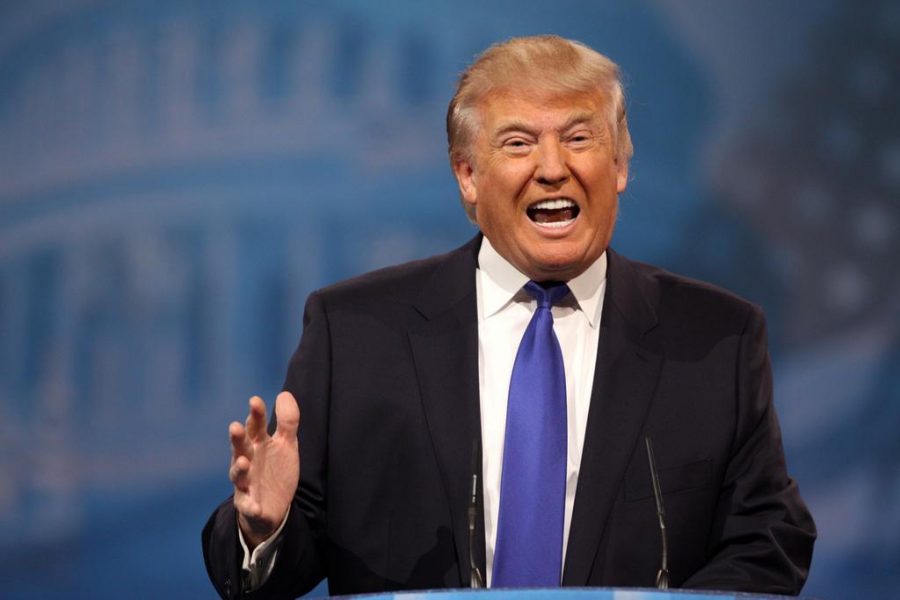Since election day, analysts have been hard at work trying to decipher how exactly Trump defied experts and statisticians alike in triumphing over heavy favorite Hillary Clinton. One of many takeaways has been that large numbers of Republicans and Independents who might otherwise have broken for a Democrat or third-party candidate felt obliged to vote for Trump because of their disapproval of The Patient Protection and Affordable Care Act (ACA), more commonly referred to as “Obamacare.”
Repealing Obamacare has long been a centerpiece of Trump’s rally speeches and TV interviews and remains a highlight of his transition website. Now that a Trump administration is only weeks away, millions of Americans are wondering if Trump will follow through on this promise, and if so what the future of American healthcare holds.
Some uncertainty arose from an interview he did with the Wall Street Journal shortly after being elected. In it, he seemed to soften his stance towards certain aspects of the ACA. He suggested, for example, that he is open to keeping the statutes banning higher premiums for enrollees with preexisting conditions and letting dependents stay on their parents’ coverage until the age of 26.
Nevertheless, in other comments he has clarified that he still intends to repeal the law as a whole first. With Republicans controlling both chambers of Congress, it seems that this is inevitable. Meanwhile, details of a potential replacement plan, already dubbed “Trumpcare,” though still scarce, have recently started to emerge.
So far Trumpcare features three main ideas. The first is to expand the use of health savings accounts (HSA), which allow enrollees to save tax free funds to cover future healthcare costs. The funds roll over from year to year and accumulate when not used. This idea has been a Republican favorite for years. Newt Gingrich advocated their use as Speaker of the House and George W. Bush signed them into law in 2003.
The second idea is to eliminate state boundaries and allow insurance companies to compete with one another nationwide. Trump hopes that this competition would help blunt the recent spike in premiums and eventually drive them down.
The third idea is to turn Medicaid over to states in the form of federal block grants. The theory here is that demographics and healthcare challenges vary by state. Consequently, some states claim they can manage the program more efficiently than the federal government.
Trump’s detractors are less than impressed with these ideas. HSAs work great for higher income families who can afford to stash money away, they point out. However, poorer families are unlikely to buy the plans, which also carry high deductibles — a minimum of $2,600 for families.
State boundaries, on the other hand, have already been eliminated for insurance companies in Georgia, Maine and Wyoming. So far, not a single insurer has moved into these markets as hoped. In these cases, doctors and hospitals have been reluctant to offer out of state companies competitive prices. They simply don’t have the same in-state patient population leverage as local companies. Consequently, no new competition has emerged.
Finally, critics fear that millions of people would lose coverage if Medicaid was indeed converted to a block grant system. Many Republican governors have already resisted the Medicaid expansion offered as part of the ACA and would likely again elect to trim rather than grow state programs under Trump’s plan.
All in all, an independent analysis by The Commonwealth Fund concluded that Trumpcare as it now stands would result in 20 million people losing coverage. Only about five million of them would be expected to repurchase plans under the new system.
The American Medical Association (AMA) recently met and concluded that “a core principle is that any new reform proposal should not cause individuals currently covered to become uninsured.” As such, it unanimously voted to continue lobbying the Trump administration to preserve six key tenets of the ACA, which the AMA supported when it was first voted on.
The tenets include the coverage of dependents until 26 and preexisting conditions clauses already endorsed by Trump, as well as the continued expansion of Medicaid to 138 percent of the federal poverty level, guaranteed coverage for preventive services, medical loss limits to prevent families from incurring overwhelming costs and income-dependent tax credits to subsidize the purchase of private plans.
Dannen Wright, a second year medical student who attended the AMA conference as a student delegate from the U, says the consensus was that these tenets were “key wins for the American public when the ACA was passed” and the AMA “thus wanted to ensure their protection through the upcoming presidency.”
Regardless of the specifics of Trumpcare, one truth will remain unchanged after inauguration day. The U.S. under Trump, as it was for Obama, will be unique among developed countries in leaving large segments of its population without health insurance. Trump should keep this in mind as he continues to refine his replacement plan for the ACA. It will soon be his responsibility to continue longstanding efforts to drive healthcare costs down while also taking care of the poorest among us.






















